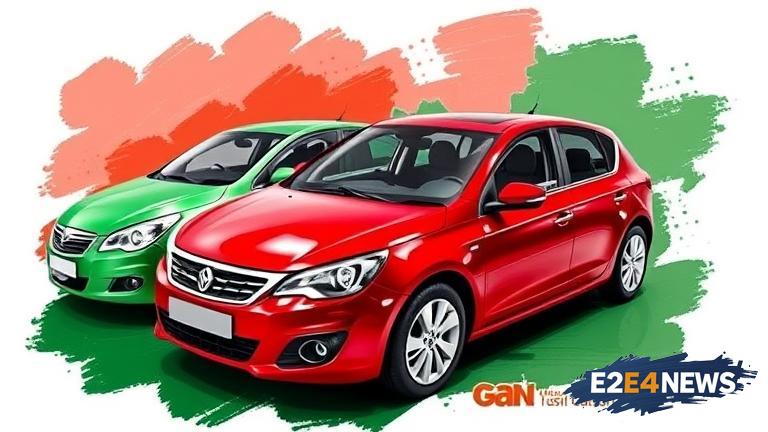The government of Pakistan has taken a significant step to boost the local automotive industry by imposing a 40% tariff on used car imports. This move is expected to reduce the country’s reliance on foreign vehicles and promote the growth of domestic car manufacturers. The tariff will be applicable to all used cars imported into the country, regardless of their make or model. The decision was made in an effort to support the local industry, which has been struggling to compete with the influx of used cars from countries such as Japan and the United Kingdom. The government believes that the tariff will help to level the playing field and give local manufacturers a chance to increase their market share. The move is also expected to generate significant revenue for the government, which can be used to fund development projects and improve the country’s infrastructure. The used car market in Pakistan has been growing rapidly in recent years, with many consumers opting for imported vehicles due to their perceived quality and affordability. However, the government has been concerned about the impact of this trend on the local industry, which has been struggling to compete. The tariff is expected to make used cars more expensive, which could lead to an increase in demand for locally manufactured vehicles. The government has also announced plans to provide incentives to local manufacturers, such as tax breaks and subsidies, to help them increase production and reduce prices. The move has been welcomed by local manufacturers, who believe that it will help them to increase their market share and compete more effectively with foreign brands. However, some consumers have expressed concerns about the impact of the tariff on their ability to afford cars. The government has assured consumers that the tariff will not have a significant impact on the prices of locally manufactured cars, which are expected to remain competitive. The move is also expected to create new job opportunities in the local industry, as manufacturers increase production to meet growing demand. The government has also announced plans to improve the country’s infrastructure, including the construction of new roads and highways, which will help to facilitate the growth of the automotive industry. The used car market in Pakistan is expected to continue to grow, albeit at a slower pace, as consumers adjust to the new tariff regime. The government has also announced plans to introduce new regulations to ensure that used cars imported into the country meet certain safety and environmental standards. The move is expected to improve the overall quality of the used car market and reduce the risk of accidents caused by poorly maintained vehicles. The government has also assured consumers that the tariff will not have a significant impact on the prices of spare parts, which are expected to remain competitive. The move is also expected to promote the growth of the local aftermarket industry, as consumers opt for locally manufactured spare parts instead of imported ones. The government has also announced plans to provide training and support to local manufacturers, to help them improve their production processes and reduce costs. The move is expected to have a positive impact on the country’s economy, as the local industry grows and creates new job opportunities. The government has also assured consumers that the tariff will not have a significant impact on the prices of cars in the long run, as local manufacturers increase production and reduce costs. The move is also expected to promote the growth of the local automotive industry, as manufacturers invest in new technologies and production processes to improve the quality and competitiveness of their vehicles.
